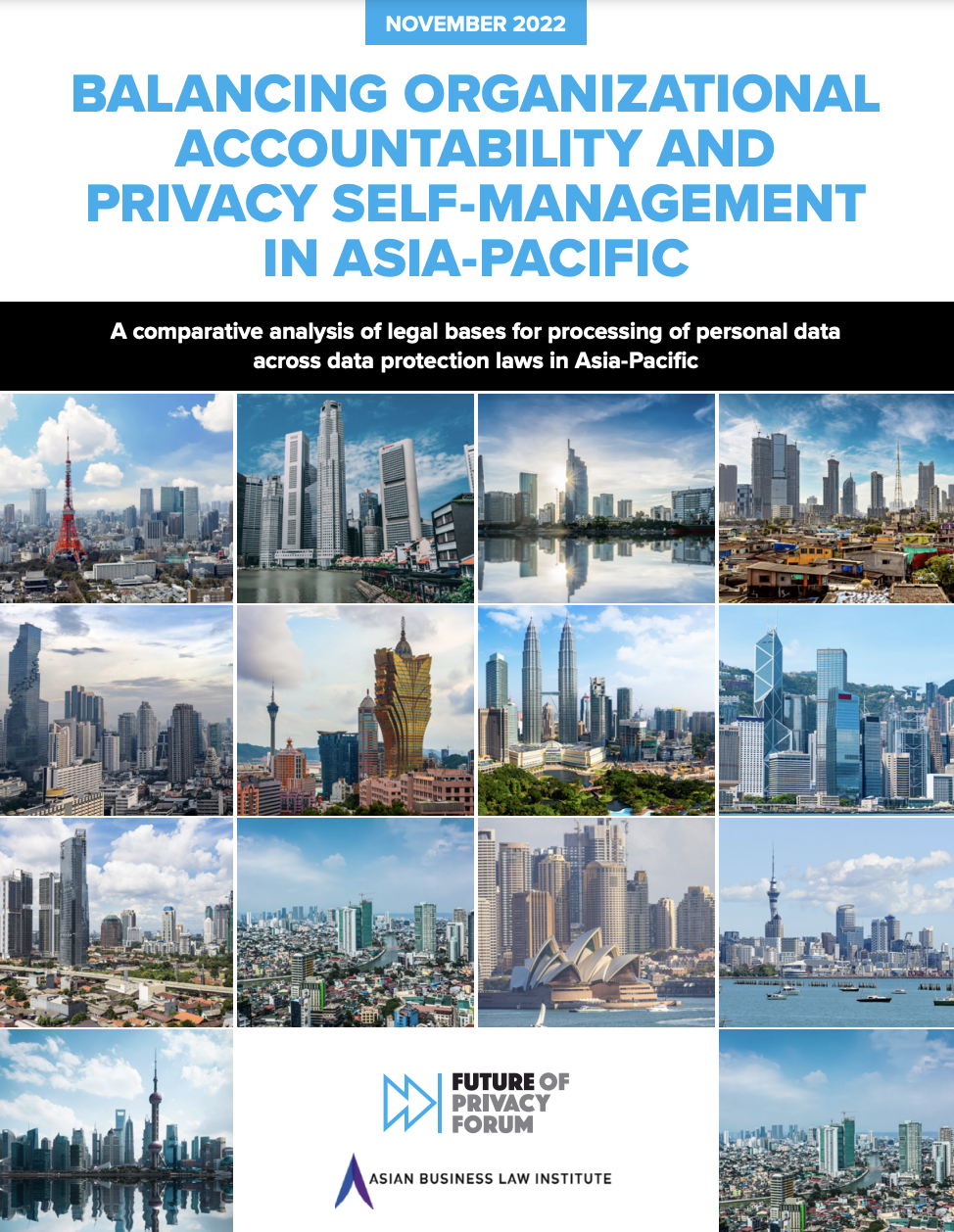
New Report Promotes Accountability-Based Approach to Data Protection in the APAC Region
In recent years, there has been an uptick in new (comprehensive) data protection laws in the Asia Pacific (APAC). This trend introduces challenges for cross-border compliance, particularly for the industry, legal practitioners, and the community of data protection regulators. As a result of the difficulties, these stakeholders acknowledge that there is a need for greater […]

The GDPR and the AI Act Interplay: Highlights from FPF and Ada Lovelace Institute’s Joint Event
Authored by Christina Michelakaki, FPF Intern for Global Policy On November 9, 2022, FPF, along with the Ada Lovelace Institute (Ada), organized a closed roundtable in Brussels where experts met to discuss the lessons that can be drawn from General Data Protection Regulation (GDPR) enforcement precedents when deciding on the scope and obligations of the […]

FPF Roundtable on Privacy-Preserving Machine Learning
The state of the art in Privacy-Preserving Machine Learning (PPML) is promising from a technical perspective but under-explored if we view it through the lens of legal instruments such as the EU AI Act and the EU Data Act. In this roundtable, we aim to contribute to clearing the path to alternative solutions for processing (personal) data […]

FPF Urges Federal Trade Commission to Craft Practical Privacy Rules
FPF Comments Regarding FTC ANPR Urge the Commission to Provide Individuals with Strong, Enforceable Rights and Companies with Greater Clarity about their Obligations under Section 5 of the FTC Act. The Future of Privacy Forum filed comments regarding the Federal Trade Commission’s Advance Notice of Proposed Rulemaking, recommending that the Commission prioritize practical rules that […]

Understanding Extended Reality Technology & Data Flows: Privacy and Data Protection Risks and Mitigation Strategies
This post is the second in a two-part series. Click here for FPF’s XR infographic. The first post in this series focuses on the key functions that XR devices may feature, and analyzes the kinds of sensors, data types, data processing, and transfers to other parties that power these functions. I. Introduction Today’s virtual (VR), […]

Event Report: FPF Side Event and Workshop on Privacy Enhancing Technologies (PETs) at the 2022 Global Privacy Assembly (GPA)
The 2022 Global Privacy Assembly (GPA) – which brings together most global data protection authorities (DPAs) every year since 1979, to share knowledge and establish common priorities among regulators – took place between October 25 and 28, in Istanbul (Türkiye). The Future of Privacy Forum (FPF) was invited by the organizers of the GPA (the […]

Call for Nominations Open: FPF’s Award for Research Data Stewardship
When companies share data with researchers in a way that protects data, the collaboration can unlock new scientific insights and drive progress in medicine, public health, education, social science, and many other fields. FPF is thrilled to announce the open nomination period for FPF’s 3rd Annual Award for Research Data Stewardship. The Award recognizes partnerships […]

GDPR and the AI Act interplay: Lessons from FPF’s ADM Case-Law Report
In May 2022, the Future of Privacy Forum (FPF) launched a comprehensive Report analyzing case-law under the General Data Protection Regulation (GDPR) applied to real-life cases involving Automated Decision-Making (ADM). Our research highlighted that the GDPR’s protections for individuals against forms of ADM and profiling go significantly beyond Article 22 – which provides for the […]

Understanding Extended Reality Technology & Data Flows: XR Functions
This post is the first in a two-part series on extended reality (XR) technology, providing an overview of the technology and associated privacy and data protection risks. Click here for FPF’s infographic, “Understanding Extended Reality Technology & Data Flows.” I. Introduction Today’s virtual (VR), mixed (MR), and augmented (AR) reality environments, collectively known as extended […]

Federal Court deems university’s use of room scans within the home unconstitutional
I. Summary A federal court recently ruled that a public university’s use of room-scanning technology during a remotely proctored exam violated a student’s Fourth Amendment right to privacy. The decision in Ogletree v. CSU is the clearest indication to date of how courts will treat Fourth Amendment challenges to public higher education institutions’ use of […]
